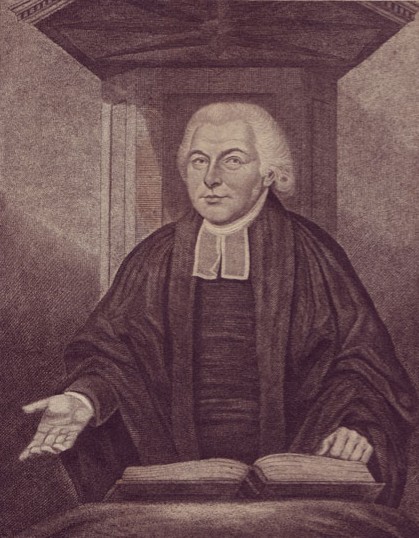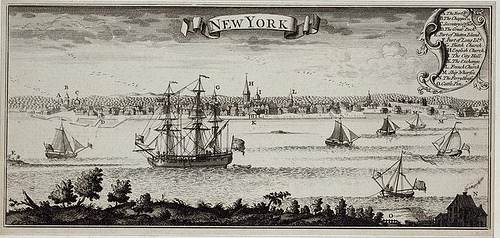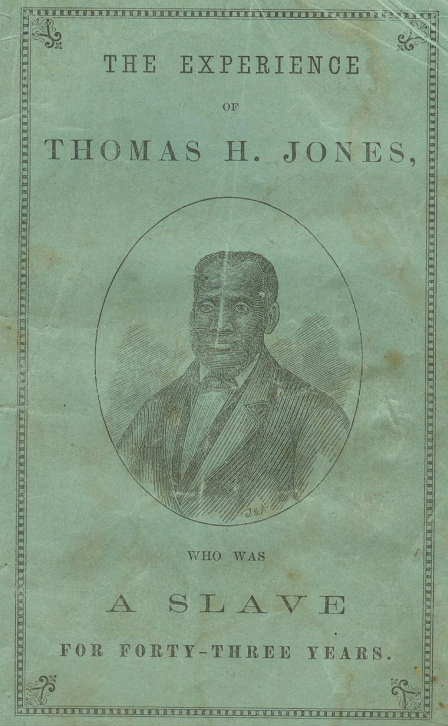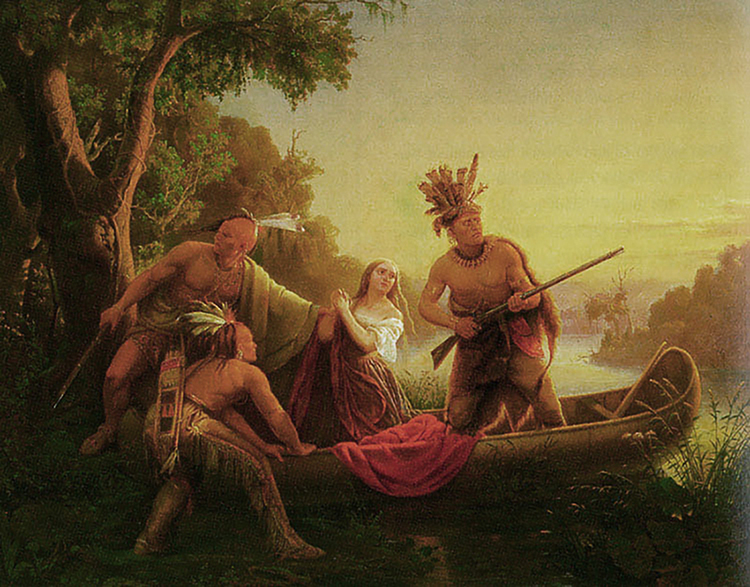|
William Aldridge
William Aldridge (1737 – 28 February 1797) was an English nonconformist minister. Biography Aldridge was born at Warminster, in Wiltshire. At age 23 he decided to become a preacher of the gospel, and was admitted to Trevecca College in South Wales. There he completed a theological course. He received a license, and for a number of years preached in the chapels of the Countess of Huntingdon's Connexion. In September 1771 Aldridge was sent by Lady Huntingdon, with Joseph Cook, another Trevecca student, to Margate, in the Isle of Thanet. They began by preaching in the open air. The numbers increased from month to month. About this time occurred in Dover a schism among the Wesleyan Methodists, and Aldridge and Cook were invited there. Aldridge preached for the first time in the market-place on a Sunday, meeting hostility. But Aldridge went to Dover to live in a former Presbyterian meeting-house, and held services. Later, the two preachers supplied Margate and Dover alternately. ... [...More Info...] [...Related Items...] OR: [Wikipedia] [Google] [Baidu] |
William Aldridge
William Aldridge (1737 – 28 February 1797) was an English nonconformist minister. Biography Aldridge was born at Warminster, in Wiltshire. At age 23 he decided to become a preacher of the gospel, and was admitted to Trevecca College in South Wales. There he completed a theological course. He received a license, and for a number of years preached in the chapels of the Countess of Huntingdon's Connexion. In September 1771 Aldridge was sent by Lady Huntingdon, with Joseph Cook, another Trevecca student, to Margate, in the Isle of Thanet. They began by preaching in the open air. The numbers increased from month to month. About this time occurred in Dover a schism among the Wesleyan Methodists, and Aldridge and Cook were invited there. Aldridge preached for the first time in the market-place on a Sunday, meeting hostility. But Aldridge went to Dover to live in a former Presbyterian meeting-house, and held services. Later, the two preachers supplied Margate and Dover alternately. ... [...More Info...] [...Related Items...] OR: [Wikipedia] [Google] [Baidu] |
John Marrant
John Marrant (June 15, 1755 – April 15, 1791) was an American Methodist preacher and missionary and one of the first black preachers in North America. Born free in New York City, he moved as a child with his family to Charleston, South Carolina. His father died when he was young, and he and his mother also lived in Florida and Georgia. After escaping to the Cherokee, with whom he lived for two years, he allied with the British during the American Revolutionary War and resettled afterward in London. There he became involved with the Countess of Huntingdon's Connexion and ordained as a preacher. Marrant was supported to travel in 1785 as a preacher and missionary to Nova Scotia, where he founded a Methodist church in Birchtown. He married there before settling in Boston, Massachusetts. In 1790 he returned to London. He wrote a memoir about his life, published in 1785 in London as ''A Narrative of the Lord's Wonderful Dealings with John Marrant, a black''; also published were a 1789 ... [...More Info...] [...Related Items...] OR: [Wikipedia] [Google] [Baidu] |
1797 Deaths
Events January–March * January 3 – The Treaty of Tripoli, a peace treaty between the United States and Ottoman Tripolitania, is signed at Algiers (''see also'' 1796). * January 7 – The parliament of the Cisalpine Republic adopts the Italian green-white-red tricolour as the official flag (this is considered the birth of the flag of Italy). * January 13 – Action of 13 January 1797, part of the War of the First Coalition: Two British Royal Navy frigates, HMS ''Indefatigable'' and HMS ''Amazon'', drive the French 74-gun ship of the line '' Droits de l'Homme'' aground on the coast of Brittany, with over 900 deaths. * January 14 – War of the First Coalition – Battle of Rivoli: French forces under General Napoleon Bonaparte defeat an Austrian army of 28,000 men, under ''Feldzeugmeister'' József Alvinczi, near Rivoli (modern-day Italy), ending Austria's fourth and final attempt to relieve the fortress city of Mantua. * January 26 & ... [...More Info...] [...Related Items...] OR: [Wikipedia] [Google] [Baidu] |
1737 Births
Events January–March * January 5 – Spain and the Holy Roman Empire sign instruments of cession at Pontremoli in the Grand Duchy of Tuscany in Italy, with the Empire receiving control of Tuscany and the Grand Duchy of Parma and Piacenza, in return for Don Carlos of Spain being recognized as King of Naples and King of Sicily. * January 9 – The Empires of Austria and Russia enter into a secret military alliance that leads to Austria's disastrous entry into the Russo-Turkish War. * January 18 – In Manila, a peace treaty is signed between Spain's Governor-General of the Philippines, Fernándo Valdés y Tamon, and the Sultan Azim ud-Din I of Sulu, recognizing Azim's authority over the islands of the Sulu Archipelago. * February 20 – France's Foreign Minister, Germain Louis Chauvelin, is dismissed by King Louis XV's Chief Minister, Cardinal André-Hercule de Fleury * February 27 – French scientists Henri-Louis Duhamel du Monceau and Georges ... [...More Info...] [...Related Items...] OR: [Wikipedia] [Google] [Baidu] |
People From Warminster
A person ( : people) is a being that has certain capacities or attributes such as reason, morality, consciousness or self-consciousness, and being a part of a culturally established form of social relations such as kinship, ownership of property, or legal responsibility. The defining features of personhood and, consequently, what makes a person count as a person, differ widely among cultures and contexts. In addition to the question of personhood, of what makes a being count as a person to begin with, there are further questions about personal identity and self: both about what makes any particular person that particular person instead of another, and about what makes a person at one time the same person as they were or will be at another time despite any intervening changes. The plural form "people" is often used to refer to an entire nation or ethnic group (as in "a people"), and this was the original meaning of the word; it subsequently acquired its use as a plural form of per ... [...More Info...] [...Related Items...] OR: [Wikipedia] [Google] [Baidu] |
English Christian Religious Leaders
English usually refers to: * English language * English people English may also refer to: Peoples, culture, and language * ''English'', an adjective for something of, from, or related to England ** English national identity, an identity and common culture ** English language in England, a variant of the English language spoken in England * English languages (other) * English studies, the study of English language and literature * ''English'', an Amish term for non-Amish, regardless of ethnicity Individuals * English (surname), a list of notable people with the surname ''English'' * People with the given name ** English McConnell (1882–1928), Irish footballer ** English Fisher (1928–2011), American boxing coach ** English Gardner (b. 1992), American track and field sprinter Places United States * English, Indiana, a town * English, Kentucky, an unincorporated community * English, Brazoria County, Texas, an unincorporated community * En ... [...More Info...] [...Related Items...] OR: [Wikipedia] [Google] [Baidu] |
The Evangelical Magazine
The Evangelical Movement of Wales, formed in 1948, came to light as a counter move by reformed Christians to the liberal theology which was gaining influence into the Protestant denominations of Wales during the 20th century. The Movement is a fellowship of churches and individuals who accept and recognise the Holy Scriptures, as originally given, as the infallible Word of God and of divine inspiration, and their sole authority in all matters of faith and practice. The Movement serves both English and Welsh speakers. Given this bilingual focus, where appropriate, parallel and corresponding status is given to both languages in their work. Aims The Movement's stated aims are: *the promotion of a true and faithful witness to the fundamental truths of the Christian faith and to the essential spiritual unity of those who subscribe to it, *to bring others to a personal knowledge of the Lord Jesus Christ and to encourage such to live a godly life, *to foster evangelism, experiential re ... [...More Info...] [...Related Items...] OR: [Wikipedia] [Google] [Baidu] |
Slave Narrative
The slave narrative is a type of literary genre involving the (written) autobiographical accounts of enslaved Africans, particularly in the Americas. Over six thousand such narratives are estimated to exist; about 150 narratives were published as separate books or pamphlets. In the United States during the Great Depression (1930s), more than 2,300 additional oral histories on life during slavery were collected by writers sponsored and published by the Works Progress Administration, a New Deal program. Most of the 26 audio-recorded interviews are held by the Library of Congress. Some of the earliest memoirs of captivity known in the English-speaking world were written by white Europeans and later Americans, captured and sometimes enslaved in North Africa by local Muslims, usually Barbary pirates. These were part of a broad category of "captivity narratives". Beginning in the 17th century, these included accounts by colonists and later American settlers in North America and the Unite ... [...More Info...] [...Related Items...] OR: [Wikipedia] [Google] [Baidu] |
Henry Louis Gates, Jr
Henry Louis "Skip" Gates Jr. (born September 16, 1950) is an American literary critic, professor, historian, and filmmaker, who serves as the Alphonse Fletcher University Professor and Director of the Hutchins Center for African and African American Research at Harvard University. He is a Trustee of the Gilder Lehrman Institute of American History. He rediscovered the earliest African-American novels, long forgotten, and has published extensively on appreciating African-American literature as part of the Western canon. In addition to producing and hosting previous series on the history and genealogy of prominent American figures, since 2012, Gates has been host of the television series ''Finding Your Roots'' on PBS. It combines the work of expert researchers in genealogy, history, and genetics historic research to tell guests about their ancestors' lives and histories. Early life and education Gates was born in Keyser, West Virginia, to Henry Louis Gates Sr. (c. 1913–2010) an ... [...More Info...] [...Related Items...] OR: [Wikipedia] [Google] [Baidu] |
African American
African Americans (also referred to as Black Americans and Afro-Americans) are an ethnic group consisting of Americans with partial or total ancestry from sub-Saharan Africa. The term "African American" generally denotes descendants of enslaved Africans who are from the United States. While some Black immigrants or their children may also come to identify as African-American, the majority of first generation immigrants do not, preferring to identify with their nation of origin. African Americans constitute the second largest racial group in the U.S. after White Americans, as well as the third largest ethnic group after Hispanic and Latino Americans. Most African Americans are descendants of enslaved people within the boundaries of the present United States. On average, African Americans are of West/ Central African with some European descent; some also have Native American and other ancestry. According to U.S. Census Bureau data, African immigrants generally do not s ... [...More Info...] [...Related Items...] OR: [Wikipedia] [Google] [Baidu] |
Race (human Categorization)
A race is a categorization of humans based on shared physical or social qualities into groups generally viewed as distinct within a given society. The term came into common usage during the 1500s, when it was used to refer to groups of various kinds, including those characterized by close kinship relations. By the 17th century, the term began to refer to physical (phenotypical) traits, and then later to national affiliations. Modern science regards race as a social construct, an identity which is assigned based on rules made by society. While partly based on physical similarities within groups, race does not have an inherent physical or biological meaning. The concept of race is foundational to racism, the belief that humans can be divided based on the superiority of one race over another. Social conceptions and groupings of races have varied over time, often involving folk taxonomies that define essential types of individuals based on perceived traits. Today, scientists con ... [...More Info...] [...Related Items...] OR: [Wikipedia] [Google] [Baidu] |
Indian Captivity Narrative
Captivity narratives are usually stories of people captured by enemies whom they consider uncivilized, or whose beliefs and customs they oppose. The best-known captivity narratives in North America are those concerning Europeans and Americans taken as captives and held by the indigenous peoples of North America. These narratives have had an enduring place in literature, history, ethnography, and the study of Native peoples. They were preceded, among English-speaking peoples, by publication of captivity narratives related to English people taken captive and held by Barbary pirates, or sold for ransom or slavery. Others were taken captive in the Middle East. These accounts established some of the major elements of the form, often putting it within a religious framework, and crediting God or Providence for gaining freedom or salvation. Following the North American experience, additional accounts were written after British people were captured during exploration and settlement in Ind ... [...More Info...] [...Related Items...] OR: [Wikipedia] [Google] [Baidu] |




_1938.jpg)



